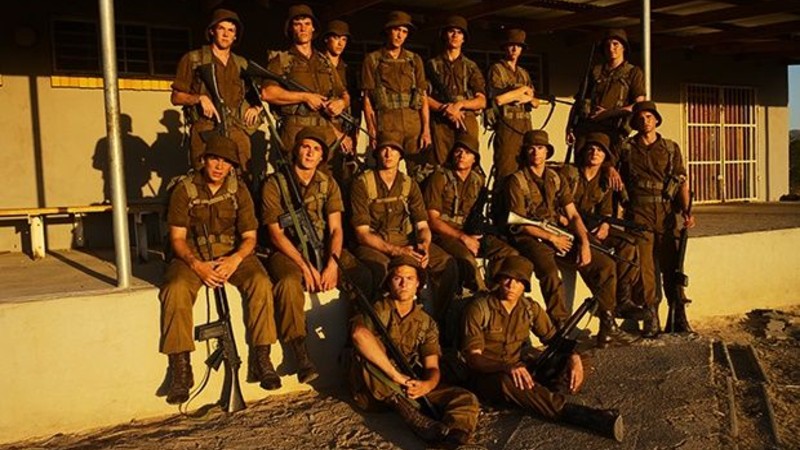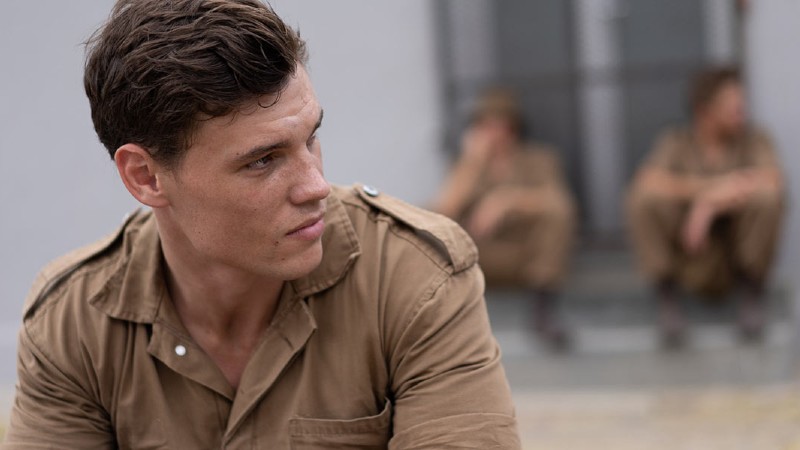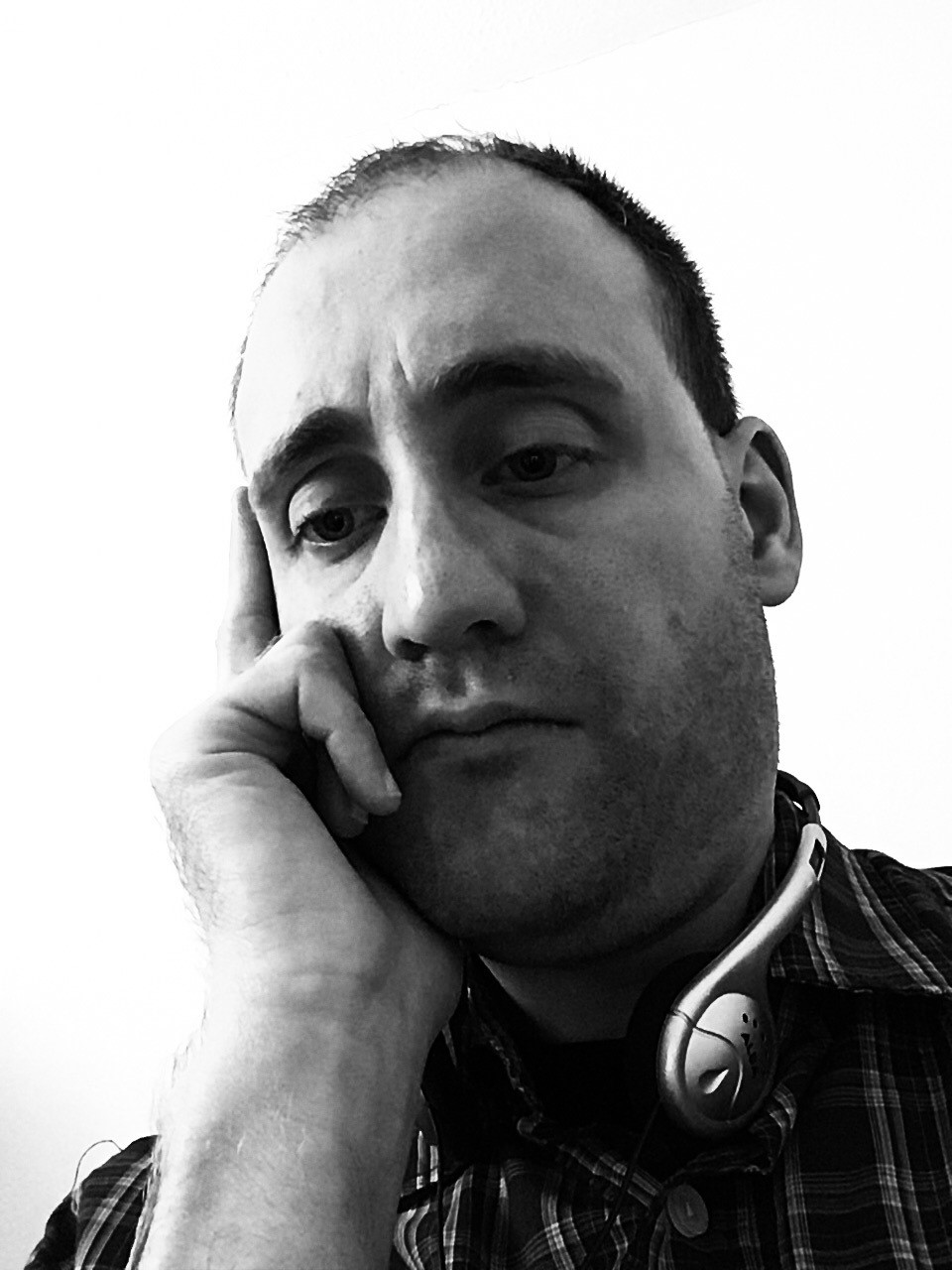




The fourth feature from South African filmmaker Oliver Hermanus tells the story of the experiences of the silent generation of white South African men who served in the South African Border War (1986-1989).
Reflecting on this chapter in his country’s history, the filmmaker explains, “… this was a generation of men that didn’t talk about what happened during this conflict. It’s a very controversial war because it had no value – it never ended in a sense there was a winner and a loser; everything just evaporated. The borderline and the countries changed, and the army that was fighting it no longer exists. So there’s a lot of guilt and shame that these men have taken on because they were forced into something that represents the Apartheid system.”
The film is set in 1981, and like all white boys over the age of 16, Nicholas Van der Swart (Kai Luke Brummer) must complete two years of compulsory military service to defend the Apartheid regime. The title of the film means weak, effeminate or illegal, and amidst the fear of communism and the “die swart gevaar” (the black danger), homosexuality is forbidden, placing Nicholas in danger when he experiences a connection with a fellow recruit.
In conversation with DMovies, Hermanus discussed his approach to the filmmaking process, the contradictions arising from his conflicted feelings, and his desire for Moffie to be a fearless piece of filmmaking.
…
.
Paul Risker – Why film as a means of creative expression? Was there an inspirational or defining moment for you personally?
Oliver Hermanus – There is a very clear memory of going to the movies as a youngster with my dad, and I remember seeing the live action movie The Bear, by Jean-Jacques Annaud, that just connected with me – there was something deeply emotional about the film. There was the power to be impacted and I became addicted to the effect of movies, and the sense of how they can change my attitudes and the way I feel. So I started craving being in the cinema, and particularly when I was younger, seeing what were more and more challenging films. I would try to see films that I shouldn’t have been seeing because I was too young, like The Crying Game (Neil Jordan, 1992), or Eyes Wide Shut (Stanley Kubrick, 1999), which I saw illegally at high school. I definitely see film as an upsetter, as a way of challenging people, and that’s the heart of why I want to make films.
PR – Discussing the relationship of the film and the filmmaker, writer/director Rebecca Miller remarked to me: “If they are made honestly, all pieces of art are self-portraits of the person making them.” Do you agree with her?
OH – There definitely is a tax to creating films, but not every director thinks about filmmaking in this way. There’s a part of the world where cinema is just a business, a factory, and directors step in and step out with very little personal tax. But the work that I’ve made and the way that I like to make films, there definitely is the risk that you always place yourself in by pouring a lot of yourself into the film. The risk comes from the vulnerability of making something in earnest, giving it every fibre of your being, every last morsel of your energy, and then having it go out to the world with no guarantees that it’ll be appreciated. It could be so heavily criticised that it impacts you personally, and that’s something you only learn through releasing films.

When my second film [Beauty, 2011] got into Cannes, I was 17 and I remember the festival director calling me to tell me they wanted the film to come to the festival. I thought that was it, that I’d made a film. It was such a personal and an emotionally taxing film to make, that I was not prepared for the fact that the world would then weigh and measure it in other ways, and that’s where a part of your soul gets taken. You put yourself out there in such an extreme way and you can’t take it back.
OH – What compelled you to believe in this film and decide to tell this story at this particular point in time?
For me personally, my previous film The Endless River (2015) felt like my first film, although it was my third. It was the hardest film to make. It pulled me in every direction, and at the end of the process, it felt like I had come through a baptism by fire. There were moments in the making of the film where going left or going right would have this enormous impact on the completion of the film, and when it became the first South African film to ever enter competition in Venice, when that happens, you are overwhelmed by this emotional release because you have been holding it together.
I remember standing in Venice and it being the first time I felt that I could make a film – the idea that making a film is blood and guts, having embalmed myself in myself, where I now had this resolute gut instinct about how to make a film, and how to survive it when the conditions are bad from different directions, whether financial or creative.
Coming out of The Endless River, I had a set of rules for myself about the kind of people I wanted to work with, or how I wanted to go about making my next film, and Moffie is the product of that. Ironically, I work with the same team, the same production designer, costume designer, director of photography, composer and producers, but it was just that my attitude was different. I wanted to make something that was unafraid, and so I suppose in answer to your question, the choice of what is next is for me always revolves around what came before.
PR – Picking up on your point about the moment you felt you could make a film, what we are versus what we feel we are can often be out of synch.
OH – One of the interesting challenges for me is whether I would refer to myself as an artist, and whether filmmaking in the sense of what I do is art, or artistic? Does it have that legitimate description or label? It’s always the question of legitimacy of owning a space, and I’ve made four films now.
If you think about the amount of time that I’ve actually spent on a movie set, they’ve only been my own. Directors don’t get to work with other directors, we go to other sets more as spectators. But the crew, they spend every week of their lives on a film set, and you’re coming to the process sometimes being the least exposed to the environment that you are in control of. So there’s an occupational strain where you’re not sure what it is you are, or whether you’re just an impostor – that’s an insecurity. Moffie was the first time that the insecurity went away, so I am now walking onto a movie set of my own, whether that’s this year or next year with an internal calm about it, with an internal sense of feeling of place.

PR – Moffie is characterised by a reluctance to make statements or to preach to the audience. Do you trust the audience to criticise the story for themselves?
OH – My attitude is about posing questions – my film is a question, a provocation of some kind to the audience. I’m more about the passive meaning of things, the silences, and there is usually not a lot of dialogue in my work. I would agree with you that I assume the audience’s level of intelligence and focus, and you hope that there’s a resonance. The expositional and prescriptive sentiment of bashing things over their head is not the style of filmmaking that I like to make, or that I like to watch.
PR – Music often replaces verbal communication or the expression of feelings in your latest film. Why is that?
OH – The music is a perfect example of that attitude I went into the film with – a confidence or ambition to firstly use the music that I wanted to use, despite the potential expensive costs. I suppose the relationship the music has with the rest of the film, it was a risk. When I started doing it, the editor was a little bit apprehensive because you go into these moments using famous pieces, where there’s always the question: Can I use something in my film that has been used in very popular movies? There’s an insecurity that comes with that as well, because people remember some of these pieces from films like Barry Lyndon or The Piano Teacher, and Bach’s Fugue [Toccata and Fugue in D Minor], is often used as a comical piece of work in commercials.
It was one of those moments where I was just going to go with this confidence, this gut feeling about playing against the sentiment of the music and using it as an energiser, but it was also a disarming tactic in where the audience’s focus goes, particularly when we cut to the flashback. And then relating that direction to the composer who was creating original music to live and coexist with this famous music. The use of music is one of those examples of how it’s important as filmmakers to take risks.
PR – From film to film, do you learn by taking different risks specific to that film, and is it a process of developing an instinct for what works?
OH – You definitely learn from film to film, and there’s also the factor of being inside of your own film. The more you prepare and the more centred you are in the message, the heartbeat of the story and the world you are creating while you’re shooting, the more solid that is. And if you have a perspective as the filmmaker, the easier in a sense it is to make decisions and to explore ideas, like the music in this film. So that’s the learning experience, the creative confidence I was talking about, which is how I’ve become aware of the headspace I need to be in, in the creation of a film to be able to expand on my creative ideas. The impulse can be pure as long as you have perspective, direction and thread, and your feeling of the film is singular and resolute.
Oliver Hermanus is pictured at the top of this article. The other images are stills from ‘Moffie’





















